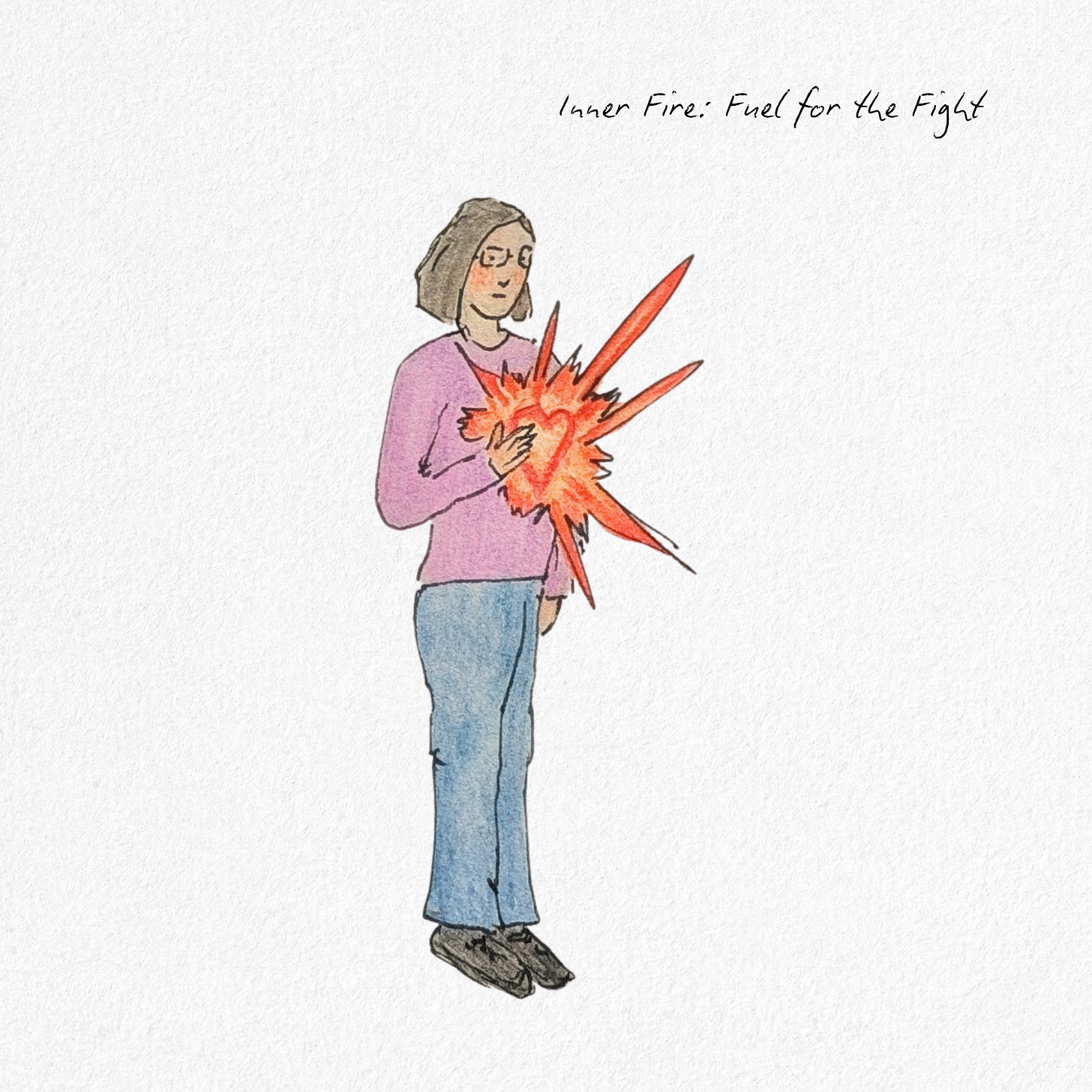The Signal I Couldn't Ignore
From Inner Fire to Fierce Resolve
I love a good-natured rant and a bit of dark humour — you’ll know that if you read this blog.
But this week, the rant wasn’t funny. It was raw.
I was on the phone with a close friend when I just… lost it.
The polite phrase would be that my “halo slipped.” Truthfully, I let out more than a few choice words. But it didn’t feel like banter or release. It felt like grief and rage and frustration all boiling over. And afterwards, it sat in me like something sour.
Because somewhere along the line, I was taught that anger is a failure of faith or resilience, that I should just ‘be positive.’
But as I sat there, exhausted, I asked myself:
What if this wasn’t an emotional flaw… but an accurate response?
What the Rage Was Telling Me
Afterwards, still trying to make sense of it all, I came across something by Harriet Lerner. She wrote:
“Anger is a signal, and one worth listening to.” — Harriet Lerner
She adds, beautifully and bluntly, that questioning whether we deserve to feel anger is like asking whether we have the right to be thirsty.
Anger is something that simply is — a signal from our body and mind that something is wrong.
And I realised that’s precisely what had happened.
My anger wasn’t random or baseless.
It had something important to say.
To explain why, I need to get a little personal again, and I do have my mum’s permission to share this.
My lovely mum, if you’ve met her, you’ll know she’s a quiet warrior. She was diagnosed over two years ago with a brutal neurological disease called Multiple System Atrophy.
Lately, her condition has been deteriorating rapidly. She now needs a mechanical hoist to move between the chair and the bed. She can no longer write or use a knife and fork.
She is smiling through constant pain, still offering kindness even as her body fails her.
There are other details I’ll spare, but let’s just say: it’s hard. It’s heartbreaking. I am so sad.
And when you’re already navigating that kind of grief, the last thing you expect is for the system meant to help you to become an obstacle course.
The care services have been patchy at best.
We’ve been repeatedly passed from pillar to post, made to fill in the same forms over and over, questioned as though we’re exaggerating, and forced to wait while things get worse.
It’s felt dehumanising and obstructive. We feel challenged, not supported.
That night on the phone, my words poured out because I couldn’t hold them in any longer.
From Signal to Action
That, I now realise, was the signal:
Something was not right!
Our needs were not being met. My efforts to advocate were being dismissed.
As I kept reflecting, I returned to another voice I deeply respect — Brené Brown.
In Atlas of the Heart, she writes:
“Anger is a catalyst. It’s an emotion that we need to transform into something life-giving.” — Brené Brown
And that’s exactly what I decided to do.
I’m thankful for my safe friend who simply listened and let me let it out, with no judgment.
The adrenaline faded, replaced by a quiet, focused resolve.
In the morning, I sat down and let the truth that had been yelling inside me guide my pen.
I wrote a calm, clear, and unshakeable letter. It wasn’t a rant. It was evidence, backed by policy, and powered by love.
And I’m ready now to take this further if I have to:
To the ICB. To the MP. To the Parliamentary Ombudsman.
Not just for Mum, but for the many others like her, who are being failed.
Because here’s the truth:
Calculated decisions are being made — decisions that ignore both policy and compassion.
And that’s not okay.
I’m not taking up a whip or flipping tables in a public building but you know what? Even Jesus did that once.
When he saw injustice in the temple, he didn’t sigh quietly or send a polite email.
He acted with force. He made noise. He demanded better.
Sometimes anger is holy.
Sometimes it’s the spark that drives justice forward.
The Full Picture
So I’m going to keep listening to the signal.
And I’m going to keep acting, with clarity, with compassion, and with courage.
But alongside righteous anger, I want to practice gratitude, too, because not every experience has been negative.
Yesterday, in fact, we had an excellent occupational therapist visit us. She did exactly what she said she’d do.
She taught us how to use a new piece of equipment, and it’s already making life easier.
She gave us hope.
Because this is the whole picture:
Anger — when listened to — can lead us to life-giving action.
Gratitude — when spoken — can build bridges and restore trust.
To those working in health and care right now:
I see the quiet things you do that no one writes down.
The extra minute. The reassuring word. The steady hand.
I know you’re stretched, and still, you show up.
Thank you.
And to those making decisions at the top:
Before you redraw the thresholds and raise the bar beyond people’s reach, please remember my mother.
Remember that every number on your spreadsheet is a person like her — a family like mine — already fighting the fight of their lives.
See people, not just the numbers.
Are you also struggling with the system? I’d love to hear your story.
Whether it’s CHC, ICB, EHCP, SEND, or any other crazy acronym, please know you’re not on your own.
Join the conversation in the chat, or if that feels too vulnerable, send me a message instead. I’ll read it and I will reply.


